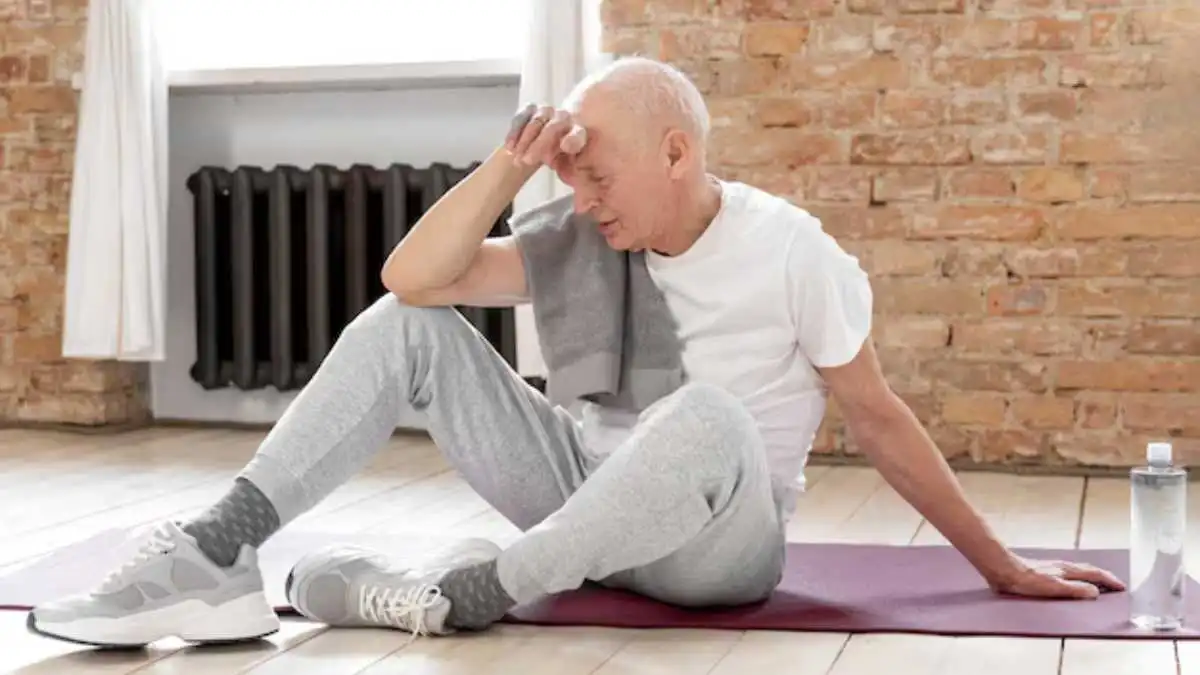HEALTH AND FITNESS
Prostate Cancer? More Yoga, Less Anxiety

Dr. Dan Sperling
When you think about yoga, chances are that your thoughts don’t include prostate cancer—unless you or a loved one has been diagnosed with that disease. Approximately 1 out of 8 men will develop prostate cancer (PCa) during his lifetime. It’s not a club men want to join, but if you happen to be a member, you should know about how yoga can benefit you.
Let’s start with anxiety. No one expects to hear the words, “You have cancer.” This news triggers the body’s flight-or-fight stress response, a cascade of biochemical changes amounting to a high alert—basically, a state of anxiety. The prostate cancer diagnosis is the gateway to a journey that includes tests, appointments, research into options, decision-making, undergoing treatment, recovery, and any side effects that may linger. In short, the stress response is not going to go away quickly.
It is estimated that up to a third of PCa patients deal with chronic feelings of worry, fear and depression throughout this journey, a hyperadapted state that sets up chronic inflammation. Inflammatory conditions tax the body’s immune system, diverting resources needed to fight the cancer. A landmark study compared two groups of PCa patients, one group practicing yoga in addition to clinical care, and the other group receiving only clinical care. Those who participated in yoga had measurably reduced inflammatory biomarkers and showed a boost in immune system activity. The investigators concluded that overall, those who practiced yoga experienced better quality of life as well as had a more active immune response and less inflammation. In addition, patients who did yoga reported lower levels of anxiety and better emotional well-being overall.
Another study involved PCa patients undergoing radiation treatment for their disease. The purpose was to explore yoga as a way to deal constructively with treatment side effects. Radiation is delivered daily over a period of several weeks, affecting healthy cells as well as cancer cells. Although cancer cells are more susceptible to radiation’s destructive impact on their DNA, the treatment burdens the body’s defenses. Thus, patients experience fatigue during the course of treatment, and there are other short-term side effects that diminish quality of life: abdominal cramping, diarrhea, painful bowel movements, urination changes or problems, erectile dysfunction. It can be a lot for a patient to cope with.

For this study, patients were randomly assigned to either a yoga class (twice a week during treatment) or treatment only with no yoga class. The researchers found that compared with the no-yoga group, those who attended the classes had a “significant reduction” in fatigue, urinary problems, and sexual dysfunction vs. those who had no yoga.
Other studies of yoga with PCa patients, as well as patients with other types of cancer, have demonstrated many benefits. In addition to improved flexibility and feelings of overall physical wellness, patients report better coping with treatments and their side effects, deeper sense of inner strength, calmness and serenity, improved stress management, and generally better quality of life. Yoga counters the negative impact of the stress response and enhances the body’s ability to function during treatment and to survive. It’s possible that these benefits have a synergistic or cumulative effect, boosting the potential for treatment success.
Finally, on a broader note, there’s a correlation between practicing yoga and one’s overall philosophy of leading a healthy life. Yoga practitioners are more likely to embrace anti-inflammatory nutrition (more plant-based whole foods with less red meat) and have time to reflect on what makes life meaningful. These, too, are habits that promote overall wellness. Thus, when it comes to walking the prostate cancer road, let yoga be a trusted companion on the journey.
NOTE: This content is solely for purposes of information and does not substitute for diagnostic or medical advice. Talk to your doctor if you are experiencing pelvic pain, or have any other health concerns or questions of a personal medical nature.
-

 GENERAL2 months ago
GENERAL2 months agoUncovering the World of кинокрадко: The Dark Side of Film Piracy
-

 GENERAL1 month ago
GENERAL1 month agoUnveiling the Art of преводсч: How Translators Bridge Language Barriers
-

 YOGA1 year ago
YOGA1 year ago4 Person Yoga Poses for Beginners
-

 GENERAL2 months ago
GENERAL2 months agoThe Journey of iamnobody89757: From Anonymous User to Internet Sensation


























